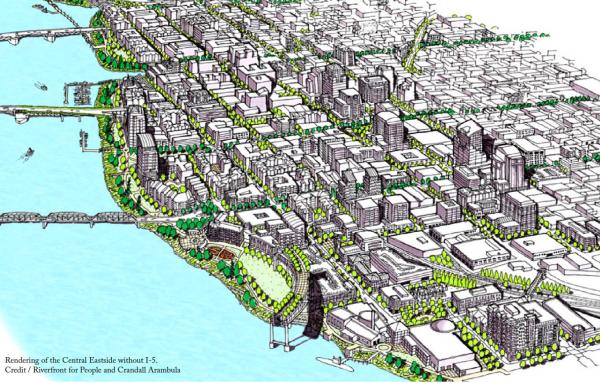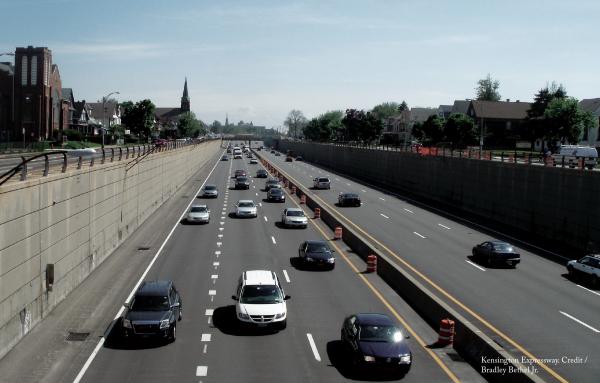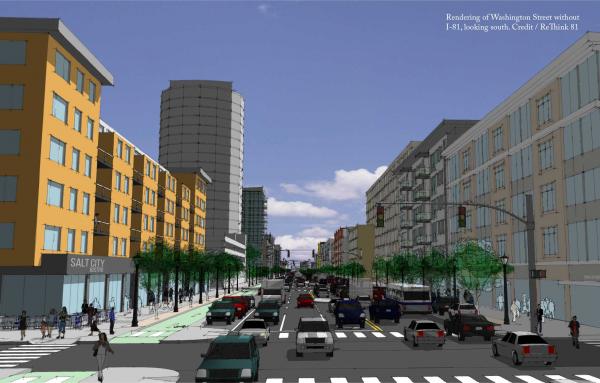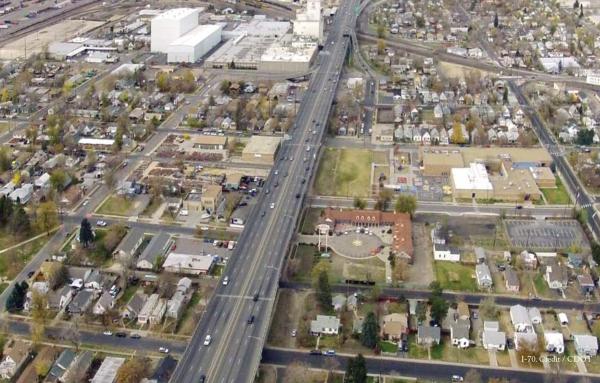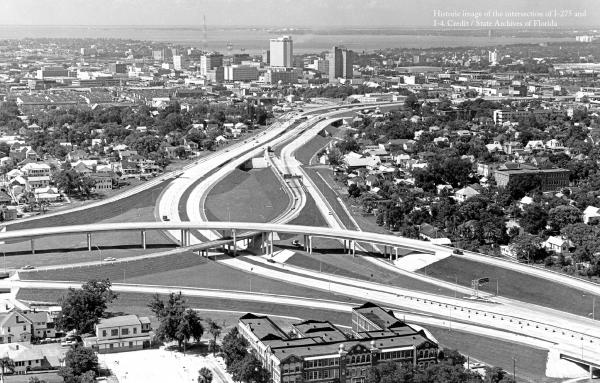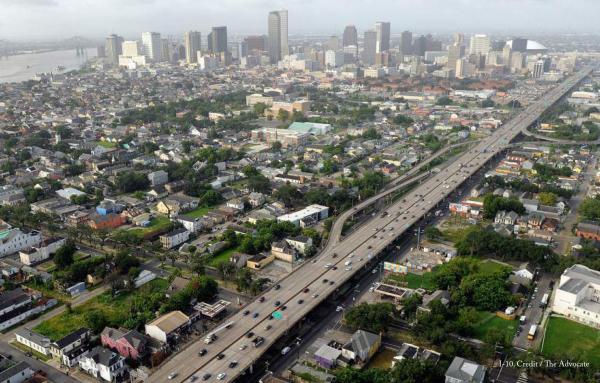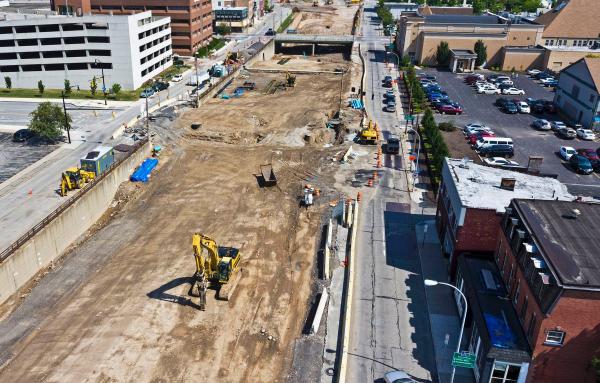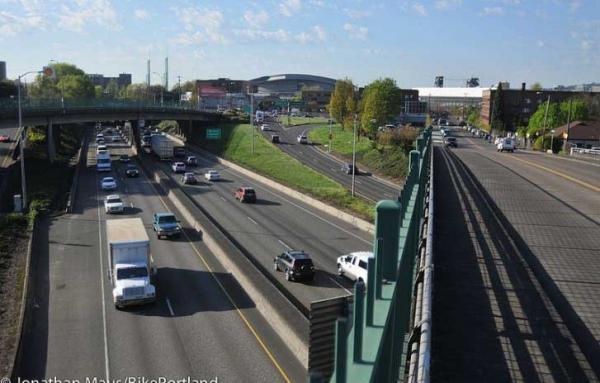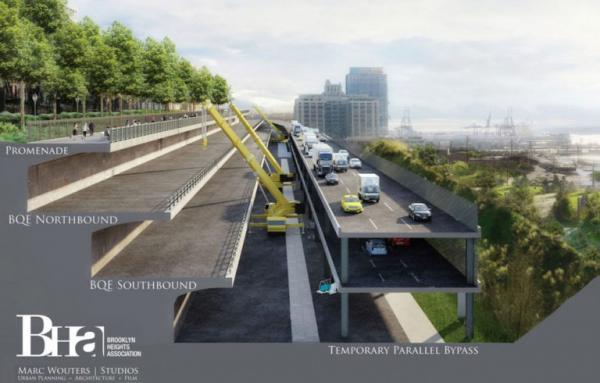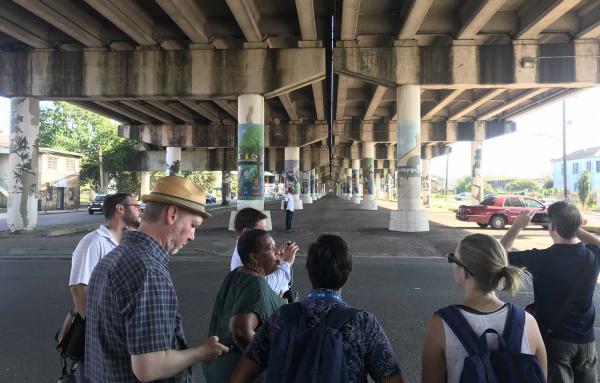Freeway transformation
Portland, Oregon, could open up the east bank of the Willamette River to adjacent neighborhoods and duplicate the success of the removal of Harbor Drive.
The Kensington and Scajaquada expressways disrupted Frederick Law Olmsted's vision and divided neighborhoods, but that damage could be undone.
Thirty-seven US urban highways were halted mid-construction by the communities in their path, saving city parks and neighborhoods from demolition.
A costly freeway, feeding a shopping mall, is a poor foundation for a mid-sized city—a better choice is to invest in infrastructure that supports downtown and surrounding neighborhoods.
A partly built reconstruction of the aging I-70 in Denver into a much wider sunken highway has elicited a more neighborhood-friendly proposal: Reroute the Interstate and turn the corridor into a boulevard.
I-275 was built on top of Central Avenue and split Tampa in half. Transformation into a boulevard is gaining political traction due to economic and quality of life benefits.
Transforming the Claiborne Expressway in New Orleans to a boulevard like the historic Claiborne Avenue would reverse 20th Century damage to a primarily African-American neighborhood.
CNU releases is biennial report, Freeways Without Futures 2019, telling the tale of ten freeways in cities where the movement has spawned active campaigns for transformation.
A $500 million widening project for Interstate 5 in Portland, Oregon, would lead to 10 to 17 million additional vehicle miles per year, according to a report in City Observatory.
The website posted a series of articles opposed to the I-5...
A redesign for the obsolete 1956 Buffalo Skyway addresses multiple community goals: enhancing mobility, promoting economic development, creating jobs, and reimagining the possibilities of Buffalo’s waterfront.
When transportation engineers make problematic city highway proposals, CNU members sometimes offer alternative design solutions that broaden the conversation—and that's the case with the BQE in Brooklyn.
CNU's 2018 Transportation Summit united local groups that battle to remove disruptive urban highway segments
